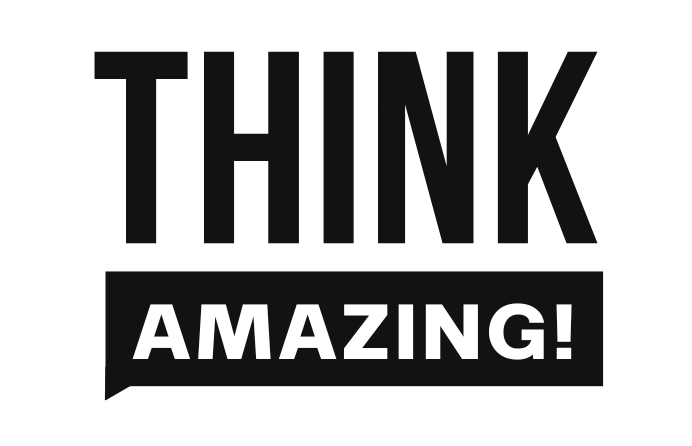Navigating Our Identity Through God’s Eyes
“Who am I?” — one of the most difficult and confusing questions you’ll ever have to answer. The world we live in is designed to spotlight our shortcomings, failures, and missteps. Many of us have, at some point, lost sight of our authentic selves, falling to the pressures of a worldly identity and seeking acceptance from our peers.
Why do we feel the need to do everything and be everything to everybody?
We wear masks to hide who we are because we believe our true identity would be rejected by the people who know us. Before we realize it, our mask becomes how the world perceives us, leading to a disconnection from our true selves.
The dream of self-love fades as shame and inadequacy infiltrate our self-image, birthing feelings of unworthiness. This distorted self-image becomes our greatest barrier, hindering our ability to live out the abundance promised to us by God.
Crafting our identity based on the opinions of others, societal norms, and cultural expectations becomes a daily tradition. We become trapped in the cycle of self-criticism and comparison, causing a disfigured perception of God’s unconditional love for us.
What’s worse about this identity crisis? It prevents us from pursuing our purpose.
Because we don’t understand who we are, we Struggle to fulfill what God has called us, designed us, and equipped us to do in Life
If you buy a brand new iPhone and a week later it stops working, what do you do? You contact Apple. Why? Because Apple is the manufacturer—the company who made the phone and is an expert at telling you how to restore the phone back to its working order. That’s what we need to do when we feel inadequate, unworthy, unloved, and hopeless. We need to connect with God, the manufacturer of humans, to become restored. God made us, so He is the true expert at helping us understand who we are and what our true purpose is.
To truly comprehend our uniqueness, we must confront the threats that seek to distort our identity. Breaking free from the shackles of worldly expectations, guilt, and external validation is crucial. We must embark on a journey of rediscovery, viewing our identity through the lens of God’s unfailing love. In navigating this path, we uncover confidence, peace, and love, all from an understanding of who we are according to who God says we are.
To Know Yourself, You Must Know the One Who Created You
God’s word holds absolute power in the universe; it is eternal, living, active, and endures forever. It serves as the perfect law, cutting through deception and bringing clarity to confusion (James 1:22-25; Psalms 119:89; Hebrews 4:12; Isaiah 40:8).
In understanding the names of God, we gain insight into His character and His relationship with us. For example, the unique and intimate bond we share with God is rooted in His eternal faithfulness (Genesis 9:16). As the creator of all things, He holds authority and Lordship over everything, extending that authority to us on earth (Matthew 28:18; Colossians 1:16-17).
In His role as a loving father, God is the ultimate provider, offering peace, strength, healing, and abundant resources (Matthew 6:26-33; James 1:17). Our needs are met because He supplies everything we require (Philippians 4:19). As our Friend, God listens to our prayers as the Holy Spirit intercedes for us (John 15:15; Romans 8:26-27), while as our Judge, we can seek His guidance based on His Word (Psalm 119:105), receiving grace and forgiveness through belief in Jesus (John 3:16; Ephesians 1:7).
Understanding why God made us takes us back to the unfolding of His original plan in Genesis 1:26:
Genesis 1:26 (NKJV): Then God said, “Let Us make man in Our image, according to Our likeness; let them have dominion over the fish of the sea, over the birds of the air, and over the cattle, over all the earth and over every creeping thing that creeps on the earth.”
This verse exemplifies God’s purpose for both the earth and humanity. When God created us in His image and likeness, His specific focus wasn’t just about physical appearance but about reflecting His moral character and spiritual nature. We mirror God’s goodness, righteousness, and ethical standards. We possess the ability to reason, discern right from wrong, and make moral choices, echoing His wisdom and creativity. As spiritual beings, we can be in a divine relationship with both God and each other. The dominion granted to us represents royal power and rule, highlighting our unique role as stewards of God’s creation.
Embodying Your Value Through His Affirmations
When we detach our self-worth from the opinions of people and society, and instead concentrate on God’s affirmations, we not only gain clarity about our identity, but also establish authentic love for ourselves, knowing that God first loved us.
We are declared perfect and a masterpiece by God (Genesis 1:31; Ephesians 2:10). While we exist in the world, we are not of the world; our true citizenship is in Heaven (John 17:16; Philippians 3:20). Our bodies, designed as sacred temples of the Holy Spirit, reflect God’s power dwelling within us (1 Corinthians 6:19-20). God places high value in us because we came directly from Him (Genesis 2:7). God cherishes us because we resemble Him; we are His children, godly in nature (1 John 3:1-2).
The ongoing process of shaping it becomes effective when we know and believe the affirmations God uses to describe us. According to His Word, we are courageous (Joshua 1:9), loved (Psalm 117:2), great (Psalm 145:3), powerful (Psalm 68:35), strong (Psalm 18:32), confident (Hebrews 4:16), victorious (1 Corinthians 15:57), blessed (Psalm 32:1-2), and protected (Psalm 91:11) by God.
Living Out Your Identity
By understanding the incredible ways God describes us in His Word, we unlock an authentic sense of confidence and self-love rooted in our Creator’s view of us. Set aside time each day to read and meditate on Bible verses about your identity in Christ. Write down and display affirmations from the Bible where you can see them daily. Spend time in prayer, asking God to reveal His love and purpose for you. Join a faith-based community for encouragement, keep a journal of your insights, and engage in worship to focus on God’s greatness and love. Serve others with your gifts and talents to align with God’s purpose and reinforce your unique value. Let these practices transform your understanding of who you are and your true identity.







